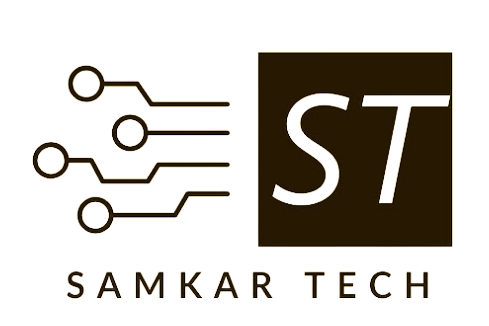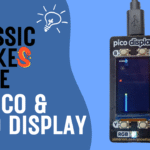Japan, renowned as a technological powerhouse, particularly in the utilization of robots within service and automation industries. It boasts the highest density of industrial robots in the world. Most of the global leaders in the manufacturing of industrial robots are based in Japan. Due to the gradually decreasing population, industrial robots have gained significant importance.Moreover, Japan leads as the foremost exporter of robots. In this article, we delve into the landscape of the top 5 manufacturers based in Japan, unveiling their contributions and influence in the thriving robotics industry.
History of industrial robotics in japan
Japan stands as a leader in the field of robotics. Over 40 years ago, Kawasaki Robotics initiated the commercial production of industrial robots. By 1995, the global usage of industrial robots had reached a staggering 700,000, and an impressive 500,000 were actively deployed in Japan. This data emphasizes Japan’s commanding position within the robotics industry, illustrating the critical role played by Japanese companies in driving the widespread adoption of automation and influencing the global trajectory of this field.
Top 5 Industrial Robotics Manufacturers in Japan
FANUC

FANUC is a well-established Japanese company that has a long history of contributing to the field of factory automation. Here are some key points about FANUC based on FANUC Official site:
- Development of NCs: FANUC began its journey in the field of numerical controls (NCs) in 1955. Numerical controls involve the use of computerized systems to control machining tools and equipment, allowing for precise and automated manufacturing processes.
- Focus on Factory Automation (FA): FANUC has made factory automation its primary focus. Factory automation includes technologies like numerical controls, servos, lasers, and robotics. FANUC has been actively involved in these areas to enhance automation and efficiency in manufacturing processes.
- Robotics: FANUC applies its basic technologies, such as numerical controls and servos, to the field of robotics. This allows for the development and production of industrial robots that can be used in various industries for tasks like welding, assembly, and material handling.
- Robomachines: FANUC also specializes in the production of robomachines. These are likely advanced machines that incorporate robotic technology for specialized manufacturing purposes.
- IoT and AI Integration: FANUC has been diligent in integrating Internet of Things (IoT) and artificial intelligence (AI) technologies into its products and solutions. This integration enables customers to use FANUC products more efficiently by leveraging data and smart algorithms.
- Continuous Support: FANUC has a policy of not terminating support for its products as long as they are in use by customers. This commitment to ongoing support ensures that customers can rely on their FANUC equipment for an extended period.
- Contributions to Manufacturing Industry: FANUC’s activities contribute to the development of the manufacturing industry in Japan and overseas. By promoting automation and efficiency in customers’ factories, FANUC plays a crucial role in advancing modern manufacturing processes.
Yaskawa

Yaskawa Electric is a company with a rich history and a commitment to adapting to the changing needs of society and the industrial landscape. Here are some key points about Yaskawa Electric based on official site:
- Establishment and Evolution: Yaskawa Electric was established in 1915. Over the years, the company has evolved from being known as “Yaskawa of Motors” to “Yaskawa of Automation” and eventually to “Yaskawa of Mechatronics.” This evolution reflects the company’s ability to adapt to changing technologies and business demands.
- Management Philosophy: Yaskawa Electric’s management philosophy is centered on “contributing broadly to the development of society and the welfare of mankind through the execution of business.” This philosophy emphasizes the company’s commitment to making a positive impact on society through its business activities.
- i3-Mechatronics: Yaskawa Electric is introducing a new solution concept called “i3-Mechatronics.” This concept combines mechatronics products (which integrate mechanical and electronic components) with data utilization. The goal is to achieve sustainable productivity improvements for customers by leveraging data and advanced technologies.
- Core Businesses: Yaskawa Electric focuses on core businesses that include servo motors, controllers, inverters, and industrial robots. These products play a vital role in various industries, especially in the context of automation and mechatronics.
- Data-Driven Evolution: The company is committed to making the most of its core technologies and evolving mechatronics through the use of data. This data-driven approach is aimed at realizing a “new industrial automation revolution” by enhancing the efficiency and effectiveness of industrial processes.
- Customer-Centric Approach: Yaskawa Electric remains dedicated to solving its customers’ management issues. By providing innovative solutions that combine mechatronics and data utilization, the company aims to help its customers overcome challenges and drive productivity.
Kawasaki

Kawasaki Heavy Industries has a significant history as a pioneer in industrial robot manufacturing, and it has played a crucial role in the development of various industries in Japan and worldwide. Here are key points about Kawasaki Heavy Industries’ contribution to the field of industrial robotics:
- Pioneer in Industrial Robotics: In 1969, Kawasaki Heavy Industries achieved a significant milestone by manufacturing the first industrial robot in Japan. This marked the beginning of the company’s journey as a leading robot manufacturer.
- High-Quality, High-Performance Robots: Kawasaki has been committed to developing and supplying high-quality, high-performance robots for a wide range of applications. These applications include welding, assembly, material handling, painting, and palletizing, among others. Their robots are designed to meet the demands of various industries.
- Diverse Sector Applications: Kawasaki’s industrial robots are used in diverse sectors, including automotive, electrical, and electronics industries. Their robots have drawn on the technologies and extensive experience the company has accumulated over decades in the field.
- Solutions for Automation and Productivity: Kawasaki Heavy Industries offers solutions that cater to their customers’ needs for automation, labor-saving efforts, enhanced productivity, improved quality, and a conducive work environment. Their robots are instrumental in streamlining operations and improving efficiency.
- Global Impact: Kawasaki’s contribution to the development of the automotive and other industries extends beyond Japan, as their products are used worldwide. Their robotics solutions have had a global impact on manufacturing processes.
Denso Robotics

DENSO, one of the world’s largest automotive parts manufacturers, has a long and influential history in manufacturing automation and industrial robotics. Here are some key points about DENSO’s role in this field:
- Leadership and Pioneering: DENSO has been a leader and pioneer in manufacturing automation since the 1960s. Their commitment to automation and innovation has been instrumental in advancing industrial robotics and automation technology.
- Design and Manufacturing of Industrial Robot Arms: DENSO is involved in the design and manufacturing of industrial robot arms. This means they not only utilize robots in their manufacturing processes but also develop and produce these robotic arms for various applications.
- Wide Range of Robot Types: DENSO is known for its expertise in small assembly robots. They utilize a variety of robot types, from 4-axis SCARA (Selective Compliance Articulated Robot Arm) robots to more complex 5- and 6-axis articulated robots. This diversity in robot types allows them to cater to different industrial needs.
- Extensive In-House Use: DENSO’s commitment to automation is evident in their extensive in-house use of small industrial robots. With over 27,000 of their own robots employed in their manufacturing facilities, they rely on automation to enhance efficiency and productivity in their operations.
- Global Impact: Beyond their own facilities, DENSO’s small industrial robots are widely adopted by other companies around the world. Over 143,000 DENSO small industrial robots are used globally by various organizations, further highlighting their global impact and the trust that other companies place in their automation solutions.
SMC

SMC, a global leader in the field of automation, plays a pivotal role in industrial robotics, offering an array of products and solutions that are vital for the efficient and sustainable operation of robots. Based on the information provided, here is a description of SMC’s involvement in industrial robotics:
- Expertise and Global Presence: With more than 500 offices in over 80 countries, SMC has established a global network that extends its support and expertise to customers in the realm of industrial robotics. This international presence allows SMC to serve customers worldwide, providing them with a comprehensive range of products and services to meet their automation needs.
- Diverse Product Portfolio: SMC offers a remarkable 700,000 product variations, which are crucial for equipping and enhancing the performance of industrial robots. These products include components for motion control, air preparation, sensing, and more, all of which are integral to the functionality of robotic systems.
- Environmental Responsibility: SMC recognizes the importance of environmental sustainability. Through continuous product development and innovation, they have been able to reduce the size and weight of their offerings. This not only enhances the efficiency and performance of industrial robots but also significantly contributes to resource and energy savings, aligning with the global effort to reduce CO2 emissions. For industrial robotics, this means that SMC’s products can help make robots more energy-efficient and environmentally friendly.
- Inclusivity and Workforce Diversity: SMC is committed to promoting a diverse and inclusive workforce. This commitment ensures that the company can tap into a wide range of talents, regardless of location, nationality, or gender. In the context of industrial robotics, this means that SMC is better positioned to understand and address the specific needs and challenges of a diverse customer base.
Also Read| Samsung Unveils AI-Powered Diagnostics at ISUOG 2023:Innovation in Medical Imaging





Discussion (0)
Share Your Thoughts